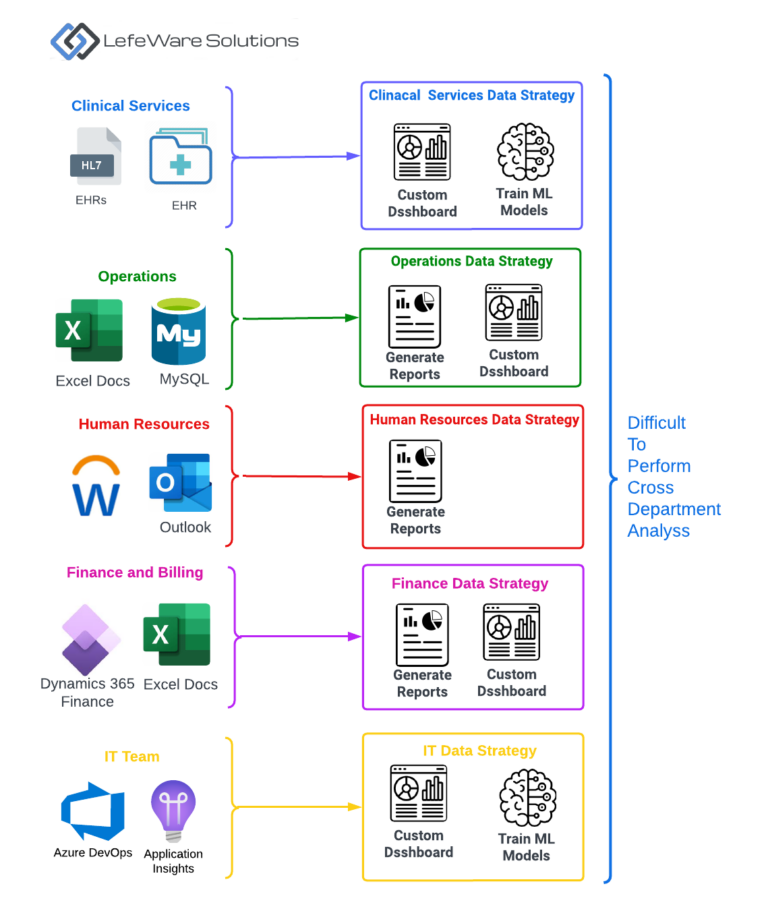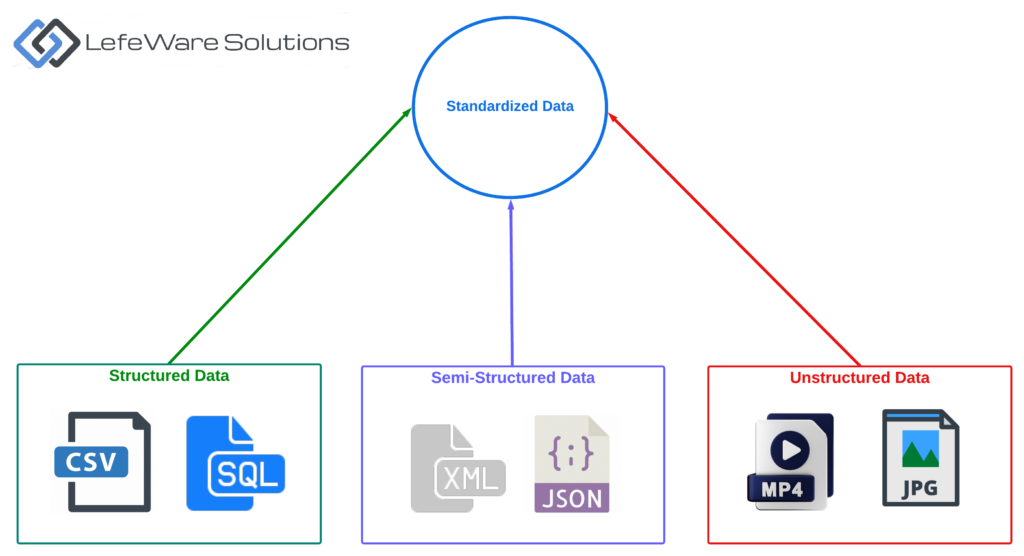
In the rapidly evolving digital landscape, small and medium-sized businesses (SMBs) are increasingly relying on data to drive their decision-making processes and improve operational efficiencies. However, the journey towards becoming a data-driven organization is full of challenges, particularly when it comes to integrating data from various sources.
These challenges stem from the diverse sources and formats of data that SMBs deal with, often leading to fragmented information systems and inconsistent data quality. This article delves into the common data integration hurdles faced by SMBs, illustrating the impact on business operations and providing insights into overcoming these obstacles. By addressing these issues head-on, SMBs can enhance their data utilization, leading to better-informed decisions and a significant competitive edge in their respective markets.
Problem 1: Breaking Down Silos
SMBs often use many different solutions for their day-to-day operations, from SaaS based systems like CRMs and ERP solutions, to social media platforms, to custom in house-built applications and even IoT devices. Each of these systems usually has their own way of generating, collecting and analyzing data that might not play well with other systems leading to what are known as data silos.
We recently collaborated with a Healthcare organization that operated various departments—finance, clinical services, IT, operations—each utilizing distinct, primarily SaaS-based systems tailored to their own departments specific challenges. The lack of effective communication between these systems resulted in fragmented data sources, complicating the analysis of customer interactions with their diverse product offerings and the effectiveness of their sales and marketing strategies.


Overcoming these silos is important for SMBs aiming to perform comprehensive analysis and derive actionable insights. Breaking down these silos is not just a technical challenge but a strategic imperative for SMBs aiming to perform comprehensive analyses and derive actionable insights.
Problem 2: Ensuring Data Quality
Data collected from various sources often varies significantly in format, quality, and structure. Quality of the data is crucial because otherwise the effectiveness of data analytics diminishes, leading to potential inaccuracies and misguided business strategies. Furthermore, inconsistent data quality and format complicate the integration process, obstructing the seamless flow of information across systems and departments.
We had another client, a broker for farming equipment, who collected data on equipment from various operators. Some companies had very meticulous standards on how they collected equipment data, while others had many inconsistencies, errors and duplication in their data repos. When our client, the broker, brought in a data scientist to begin training models across these varied datasets, the inconsistencies resulted in poor results and wasted efforts. The client’s experience underscores the critical importance of ensuring quality when integrating data before embarking on data analysis projects or predictive models.
Problem 3: Managing Data in Multiple Formats
SMBs often collect data from various sources, each with its format. For example, online sales platforms may use JSON for transaction details, whereas in-store sales systems might rely on Excel spreadsheets, and social media analytics tools could provide insights in CSV format. This variance complicates the process of consolidating data for analysis and decision-making.


Combining data from different sources into a unified format is critical for comprehensive analysis and actionable insights. However, the process is full of obstacles, such as aligning data structures, converting formats, and ensuring data quality and consistency. These challenges can significantly hamper an SMB’s ability to perform integrated data analysis and gain a holistic view of their operations.
Strategies for Effective Data Management
To avoid these common challenges around data, most large organizations appoint a Chief Information Officer (CIO) or Chief Data Officer (CDO), or a Data Manager, who possesses a comprehensive understanding of both the technical and business dimensions of data. This person is responsible for ensuring data from different departments is standardized and can easily be integrated with other sources.
For SMBs that might not yet have the capacity of bringing on this role, partnering with data strategy experts, like LefeWare Solutions, can provide invaluable guidance and support in navigating the complexities of data integration, standardization, and overall effective data management, thereby reinforcing a data-driven organizational culture.
Other responsibilities of these experts we will include:
Data Strategy Document: Coming up with a high-level company wide data strategy document on how data should be stored, managed and processed.
Implementing Automation Pipelines: Utilize middleware tools and data integration platforms for ETL processes, enabling a cohesive data ecosystem and overcoming data silos.
Helping Adopt Common Data Models: Establishing common data models across your organization will ensure uniformity across datasets and facilitate seamless integration.
Leverage Cloud-Based Platforms and Tools: Cloud-based data storage and analytics platforms offer scalable solutions for managing complex data, enhancing data processing capabilities, and enabling real-time analytics.
Conclusion
The challenges of data integration and standardization are significant, but with the right partner and strategic data solutions, SMBs can unlock the full potential of their data. By implementing these strategies, organizations can transform their data landscapes into unified, actionable platforms that drive efficiency, innovation, and strategic growth.
Ready to overcome your SMB’s data integration and standardization challenges? Contact LefeWare Solutions today for a tailored data strategy that drives results.




